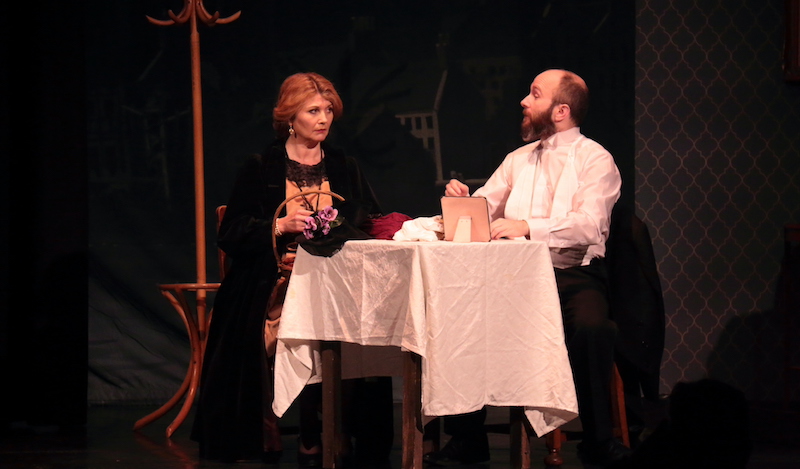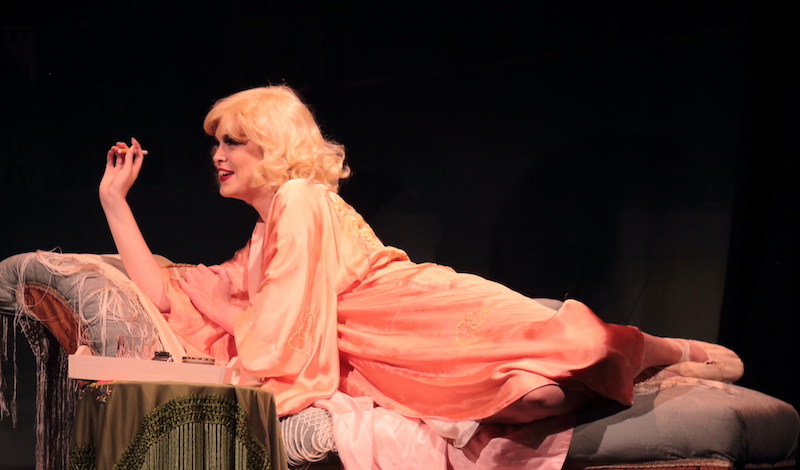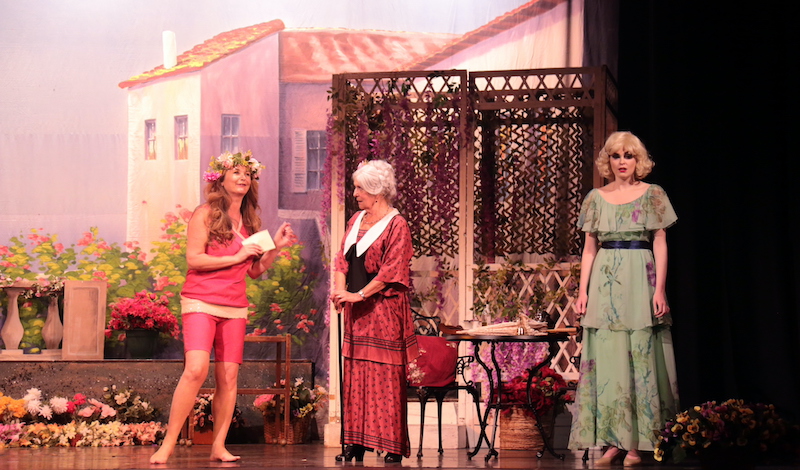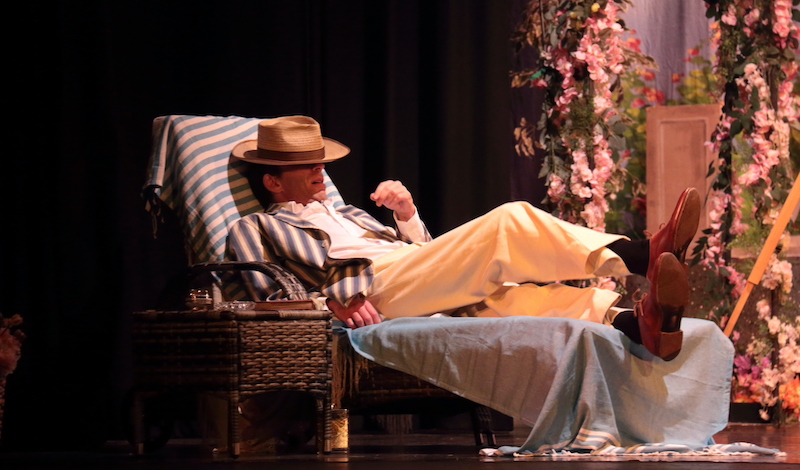Enchanted April
★★★★☆ Accomplished
Church Hill Theatre: Thurs 30 Jun – Saturday 2 Jul 2022
Review by Hugh Simpson
There is a wistful nostalgia almost built in to Threepenny Theatricals’ Enchanted April, which is at the Church Hill Theatre until Saturday.
This romantic, comic tale is given life and shape by some thoroughly impressive performances and beautifully considered direction.
Elizabeth von Arnim’s 1922 novel The Enchanted April features two English women who rent an Italian castle with two other (temperamentally very different) travelling companions, to escape from post-war London and their unappreciative husbands.
The book’s gentle comedy of manners has persisted and given rise to several adaptations; films, plays and even a musical. These tend to change the characters’ names slightly (and all, mysteriously, drop the book’s definite article) but strive to keep the original’s plot and tone. Matthew Barber’s stage adaptation is from 2003 and has a stately period feel that makes it an ideal piece of escapism.
There is undoubtedly also something more modern about it. It is easy to see what might attract any number of community theatre companies; it is still frustratingly rare to see a full-length play which has as many as four female roles taking centre stage and driving the action.
getaway scheme
Fiona Main’s Lotty Wilton, irritated by her materialistic solicitor husband Mellersh, is the driver of the whole scheme to escape London’s gloom. She is presented at first as somewhat awkward and capricious, but Main gives her genuine depth and warmth, with the character’s subsequent changes in mood appearing perfectly understandable.
Rose, her partner in the getaway scheme, is a more staid and pious figure, disapproving of her poet husband Frederick’s reinvention as a racy romantic novelist. Elspeth Whyte also invests her character with real humanity, and is able to do a great deal with a gesture or a knowing sidelong glance.
One of the piece’s most interesting preoccupations is how, even in a relatively tiny sliver of British society, the smallest distinctions in social class are so telling, which gives the companions the pair are landed with considerable interest.
Dorothy Johnstone gives Mrs Graves, a woman stuck in her memories of the Victorian era, a definite air of Lady Bracknell. Behind the hauteur, however, there is a definite sadness and frailty, and Johnstone’s performance is an assured and meticulous one.
The brittle socialite Lady Caroline also obviously hides a secret sadness. Rebekah Lansley’s aloof, cut-glass deportment is extremely successful at displaying both the character’s outward self-possession and her inner turmoil.
comic timing
Gillian Robertson gives the housekeeper Costanza a three-dimensional quality that the ‘comedy foreigner’ role scarcely deserves, with an enviable command of comic timing.
To be fair, most of the humour is at the expense of the fish-out-of-water English, particularly the men. It is easy to see why the two central characters should seek to abandon their respective husbands (and correspondingly difficult to imagine why they might ever want them back).
Chris Cotter and Larry Weil as the husbands have to cope with two much more underwritten, stereotypical roles, and do their utmost with them. Cotter’s Mellersh has a particularly nice sequence of physical comedy and Weil’s oleaginous rake, Frederick, has an odd fascination. John Bruce gives the castle’s landlord Antony Wilding a diffident charm.
There are some shifts from the whimsical, romantic atmosphere that predominates, into a broader, more farcical tone. These could be jarring, but Simon Boothroyd directs with intelligence and the lightest of touches, which makes for a composed and particularly well-paced production.
The fact that all of the first half takes place in London, and the whole of the second act in Italy, does help with staging. Main’s set includes some elegant backdrops and versatile furniture that makes the transitions between scenes less problematic than it might be, particularly in the more disjointed first act.
Mike Pendlowski’s lighting also reinforces the contrast between London’s gloom and San Salvatore’s brilliant sunlight with grace and economy.
There are some definite problems with the structure; since it is so blindingly obvious what is going to happen in the end, there is no real excuse for it taking quite so long in getting there. The determination to keep things light and frothy means that deeper issues are skated over, and it threatens to become suffocatingly mannered.
However, the care and consideration on display more than compensate, and the judicious good humour wins through.
Running time 2 hours 20 minutes (including one interval).
Church Hill Theatre, 33 Morningside Rd, EH10 4DR
Thursday 30 June – Saturday 2 July 2022
Daily at 7.30 pm; Matinee Sat 2.30 pm
Tickets: Book here.
Website: https://www.threepenny-theatricals.org
ENDS






















